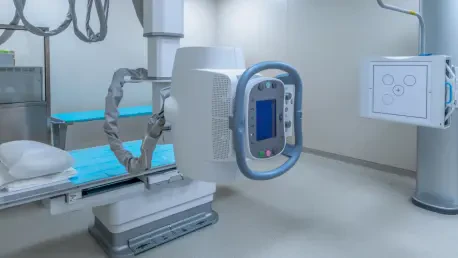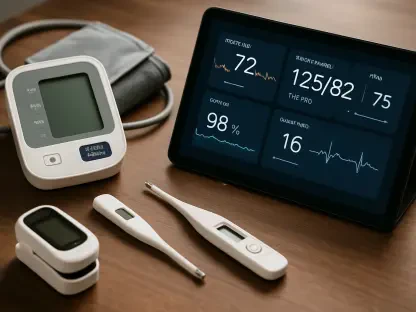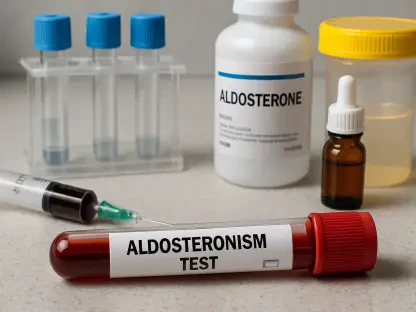The International Atomic Energy Agency (IAEA) has completed a monumental quality management audit in nuclear medicine practices, shedding light on an evolving landscape in Oman’s healthcare sector. The review, known as QUANUM, was conducted at the Royal Hospital, a prominent national referral center for over 4.6 million residents. This peer-reviewed evaluation marks a pivotal advancement as it is the first comprehensive external audit of nuclear medicine services in the country. The findings from this audit promise to enhance processes and practices, ultimately fostering improved patient care across Oman.
Revolutionizing Quality Management in Nuclear Medicine
QUANUM’s Role in Benchmarking International Standards
As Oman advances its healthcare infrastructure, the QUANUM audit, which stands as a testament to international quality management practices, plays a crucial role. This process evaluates all dimensions of the department, from clinical to administrative procedures, ensuring alignment with global standards. Conducted by the IAEA upon the Royal Hospital’s request, the audit followed an internal review that scrutinized numerous aspects of nuclear medicine services. Through this meticulous analysis, the hospital aspires to not only meet but exceed established benchmarks, setting new precedents for medical care in the region. QUANUM provides a structured framework for nuclear medicine facilities to assess themselves critically, an opportunity welcomed by the Royal Hospital, aiming to elevate its quality of services.
Comprehensive Audit Process and Results
The QUANUM audit is not merely an assessment; it is a journey toward excellence that involves multifaceted preparation and rigorous examination. In preparation, vital documentation was compiled, stakeholders informed, and all relevant personnel and areas were made ready for the audit. The review process was conducted by an expert team that included specialists from both the international stage and local professionals. This diverse team appraised the institution’s diagnostics, therapeutic interventions, and operational protocols. They did so by thoroughly examining patient onboarding processes and the general flow of operations, assessing for efficiency and excellence. The findings were used to validate existing systems and identify areas poised for enhancement, providing a roadmap for ongoing improvements.
Aiming for Sustainable Excellence in Healthcare
Aligning with National Healthcare Objectives
The broader significance of this audit lies in its alignment with the national technical cooperation project, specifically OMA6012, which seeks to amplify the nation’s capability to both diagnose and treat varied diseases. A special focus is placed on radiation safety and protection practices, data management, and the streamlined operation of healthcare services. The QUANUM mission has equipped Oman’s Royal Hospital, and by extension other similar institutions, to effectively pivot towards these goals, ensuring that the highest standards of care are continuously met and often surpassed in the pursuit of holistic health solutions for the populace. This audit provided the Royal Hospital with a strategic advantage, enhancing preparedness to deal with both communicable and non-communicable diseases with utmost proficiency.
Empowering Healthcare Professionals
Following the QUANUM audit, the Royal Hospital is now equipped with a valuable toolset — insight and recommendations that will empower its workforce. With vital affirmation from the IAEA, the hospital staff experienced a renewed sense of purpose and commitment to quality enhancement in their daily practices. Notably, Khalisa bint Zahran Al Nabhani, a Senior Consultant in Nuclear Medicine, expressed that the audit fortified their established quality management system and motivated the team toward continuous improvement. This blend of validation and constructive feedback spurred an invigorated pursuit of excellence, inspiring change that is both impactful and sustainable. Such audits not only validate existing systems but also serve as catalysts for professional development among healthcare providers.
Broader Implications of IAEA’s Audits
Expanded IAEA Auditing Framework
Beyond QUANUM, the IAEA extends its auditing capabilities across other aspects of medical practices, offering invaluable programs like QUAADRIL for diagnostic radiology and QUATRO for radiation oncology. These programs highlight the IAEA’s unwavering commitment to global health safety and effective use of ionizing radiation in medicine. These audits, offered free of charge, signify a strategic international investment in health equity, enabling health facilities worldwide to offer care characterized by safety, accuracy, and precision. Each of these initiatives spearheads the pursuit of medical excellence, driving incremental yet transformative changes in patient care standards. By facilitating the exchange of best practices across borders, they make it possible for healthcare institutions to adopt cutting-edge advancements without barriers to entry.
Future Considerations and Opportunities
The International Atomic Energy Agency (IAEA) has successfully completed a significant quality management audit focusing on nuclear medicine practices in Oman, marking a noteworthy development in the nation’s healthcare sector. This detailed assessment, referred to as QUANUM, was carried out at the Royal Hospital, which is a leading national referral center serving a population exceeding 4.6 million individuals. The audit represents a major milestone for Oman’s healthcare system as it stands as the first extensive external evaluation of nuclear medicine services within the country. Insights gleaned from this crucial review are poised to lead to substantial improvements in processes and practices. By doing so, the audit aims to elevate the standard of patient care, ensuring that healthcare services in Oman continue to progress and meet international standards. This is a progressive step in ensuring that Omani residents have access to advanced and effective medical care, ultimately enhancing overall public health outcomes.









